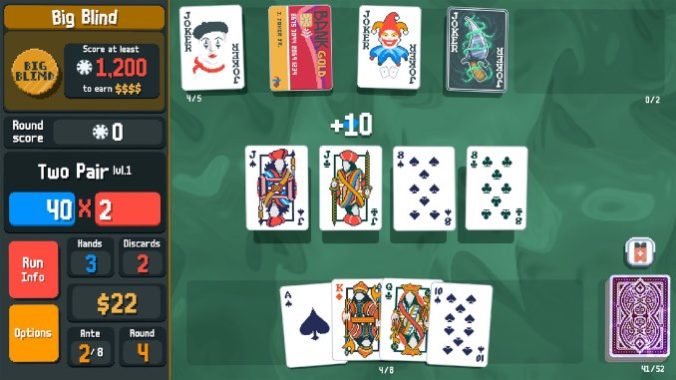In a small wooden cupboard in the spare bedroom on the second floor of her house, my grandmother hid a treasure trove of board games. The cabinet was stocked with out of print–editions of Sorry!, Monopoly, and Chinese Checkers, whose colorful, star-shaped design enticed me every time despite the fact that I did not know how to play. As a child rifling through the cabinet, assigned rules mattered far less than the chaotic fun of scattering the multicolored plastic across the board to create incoherent designs. Order mattered to my grandmother, though. Under her roof, bedtime was a prompt 10 p.m.; as long as she footed the bill, plates were to be picked clean; and if she deemed you special enough for a trip to her library, books were expected back well before their due dates. She wasn’t authoritarian by any means, she just had a certain way of going about things and tried to gently impart that upon her loved ones.
Her games of choice were naturally more mature than mine. On Tuesday afternoons, she played Mahjong with the ladies of her neighborhood, where they gossiped about neighbors, kvetched about aging, and kvelled about their incredible grandchildren. Every other possible moment of every day could be dedicated to Solitaire, if one planned correctly. My grandmother loved solitaire of all shapes and sizes: her preferred card deck was well-worn and wrinkled and, after her aged PC was forcibly replaced by a Chromebook, the first chore she set upon me was installing both the regular and spider versions.
In her eyes, Solitaire wasn’t a disordered pile-up of cards. It was a test of patience; even the most impossible shuffles were puzzles waiting to be solved. She played the game morning, noon, and night, and her razor wit was whetted more each round. (Even in her final days, her lucid moments were sharp, funny, and loving.) I like to think she enjoyed imposing order to the chaos, methodically shuffling cards from stack to stack before they filed neatly into numerical and suit-conscious piles. Playing Solitaire always calmed her down, and possibly provided a reassurance of reason within our entropic life. Without her around it’s impossible to know exactly what drew her to the game, but after a few days with Balatro, I have an educated guess.
Balatro is the latest indie obsession to spawn from the ether, a deckbuilding poker roguelike game that deals players the difficult task of completing up to 24 rounds with exponentially increasing score goals. Poker knowledge isn’t a prerequisite—every hand type is explained in a menu—and really provides the basic backbone that becomes cybernetically augmented through game-changing Joker boons, score augmenting Tarot cards, and multiplier upgrades from planet cards. It sounds so complicated but, in practice, it isn’t: Balatro is simpler in execution than explanation. The various systems mesh together to create effortless synergies that make even the most unlucky (read: horrible, no good, very bad luck) or thoughtless runs feel fun. You might need to use your brain to actually win, something I have yet to do, but there’s no punishment for turning it off and vibing out.
And let me tell you, Balatro is vibe central. Composer Luis Clemente drenches the soundtrack with lethargic synths and lagging 808s that perfectly compliment solo developer LocalThunk’s acid-trip backgrounds. Immediately after being dealt my first hand, my shoulders relaxed from their hunched position as all the stress evaporated from my body. Two hours slipped past as I matched pairs, stuffed houses until they were full, and discovered exactly how flushes work. On my third attempt, I landed at the doorstep of the final Boss blind and, despite my powerful line up of Jokers, barely made a dent in the requisite chip count. I cursed my luck, took a deep breath, and set off into the poker mines yet again seeking glory. In the thrall of Balatro, nothing else exists.
Chance is inherent to Solitaire and Balatro. It provides a certain je nais se quoi to the games, an ineffable chaos that draws us in with the slim promise of victory before kicking our ass again and again. Most of my runs in Balatro have been utter failures, complete trainwrecks of terrible luck and poor decisions that keep me from progressing out of the first few rounds. Similarly, not every game of Solitaire is winnable—sometimes the cards are distributed in a way that makes further progress impossible no matter how skilled of a player you are. But both games present you with the option to exert a little bit of control over randomness, to out think the chaos and squeeze out a win that seemed impossible only moments prior.
There’s a small comfort in this brief control, one that I think my Grandmother appreciated more than anyone. Her life was not always the easiest—she was a two time cancer survivor who outlived two husbands—but that was the hand she was dealt. If nothing else in life was going as planned, she could pull out her cards and start a game of Solitaire. It was one of the only times where she was the one shuffling and she was the one dealing. She couldn’t always win, but most times she could.
Mik Deitz is a freelance writer and former Paste intern. They inhale stories in videogames, films, TV and books, and have never finished God of War (2018). Yell at or compliment them on Twitter @dietdeitz.
